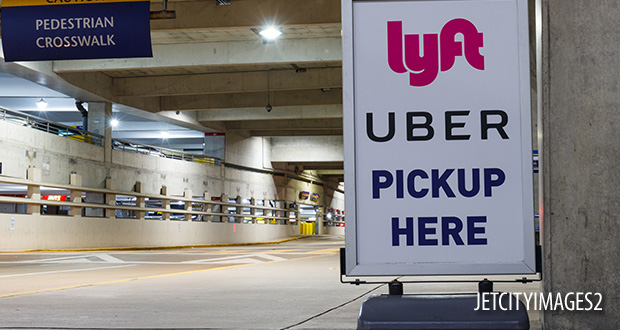
A ballot initiative strongly supported by ridesharing and restaurant delivery services to secure their workers’ status as independent contractors will not move forward, the Massachusetts Supreme Judicial Court has ruled.
Uber Technologies Inc., Lyft Inc., and DoorDash Inc. advocated for the proposed ballot initiatives in November. In a unanimous decision, the SJC said that the initiatives contain at least two “substantively distinct policy decisions, one of which is buried in obscure language at the end of the petitions.” As a result, they said that Attorney General Maura Healey’s certification of the proposals for the ballot was inappropriate and must be overturned.
A coalition of drivers and advocates for workers fought the certification.
They argued that the proposals violate the state constitution for two reasons: 1) the proposed ballot questions include unrelated subjects, and 2) the questions do not inform voters about what the proposal would do.
Gig companies had lobbied for the questions to be added to the ballot. The proposals would ensure health care stipends and guaranteed minimum pay for certain tasks but workers would be classified as independent contractors under state law.
In Massachusetts, a test known as the “ABC test” governs worker classification. That test is weighted towards labeling workers as employees. As a result, the Attorney General has sued Uber and Lyft for misclassification of their workers.
During oral arguments in the case in May, the justices said they were concerned that voters saying “yes” to the ballot question wouldn’t know that it protected the app-based companies from being sued for accidents involving drivers.
The court didn’t specifically decide whether Healey properly informed voters about the proposals.
Legislative action
Meanwhile, a bill pending in the state legislature would label gig workers for ride services and restaurant delivery as independent contractors, while given them certain benefits that are typically reserved for employees, such as retirement account funding, accident insurance for on the job injuries, and protection from discrimination.
The same issue has arisen in other states. In California, a ballot question in 2020 approved gig workers being classified as independent contractors. Earlier this year, a law went into effect that provides some benefits to gig workers but maintains their independent contractor status.
 New England Biz Law Update
New England Biz Law Update
